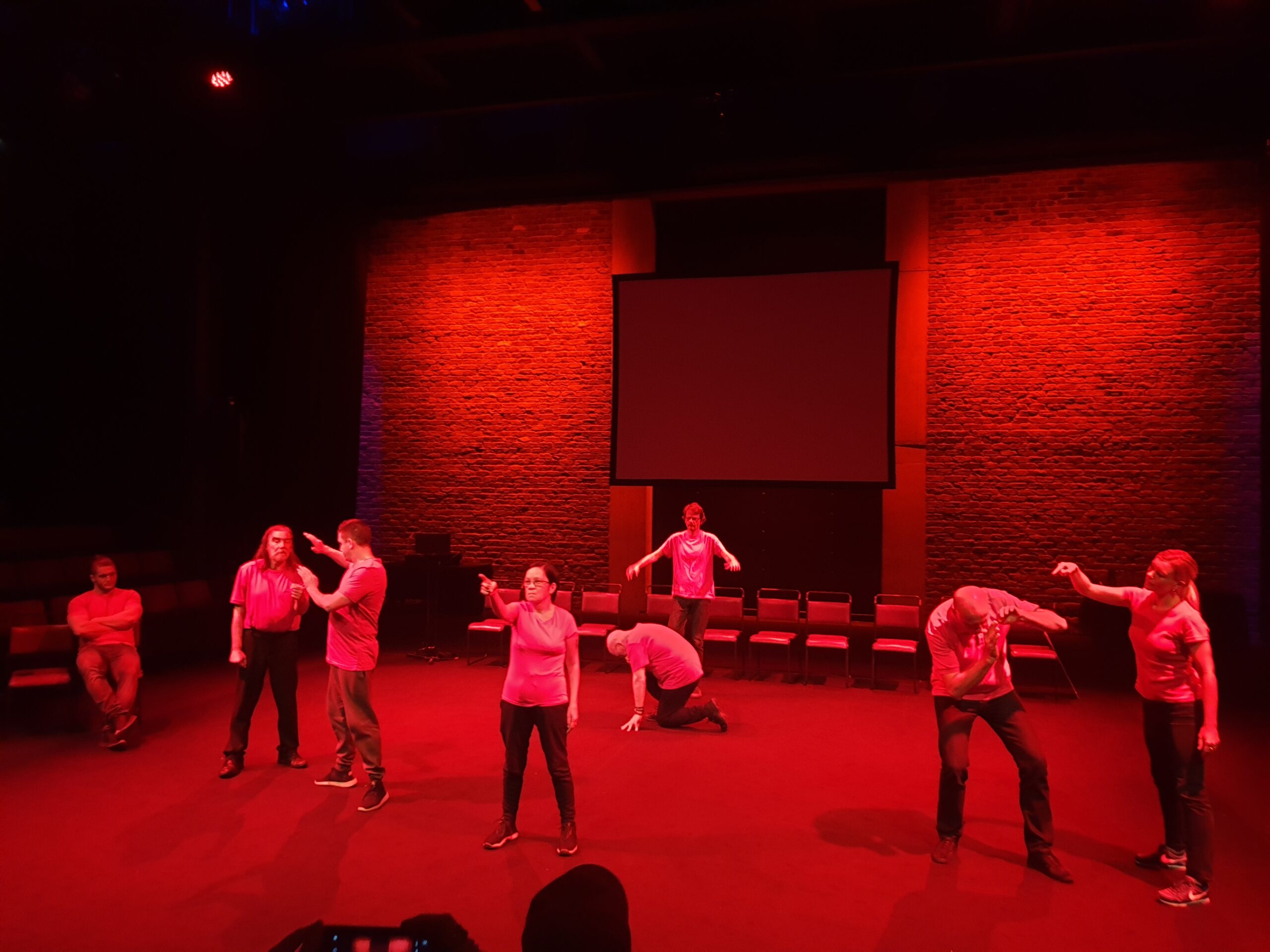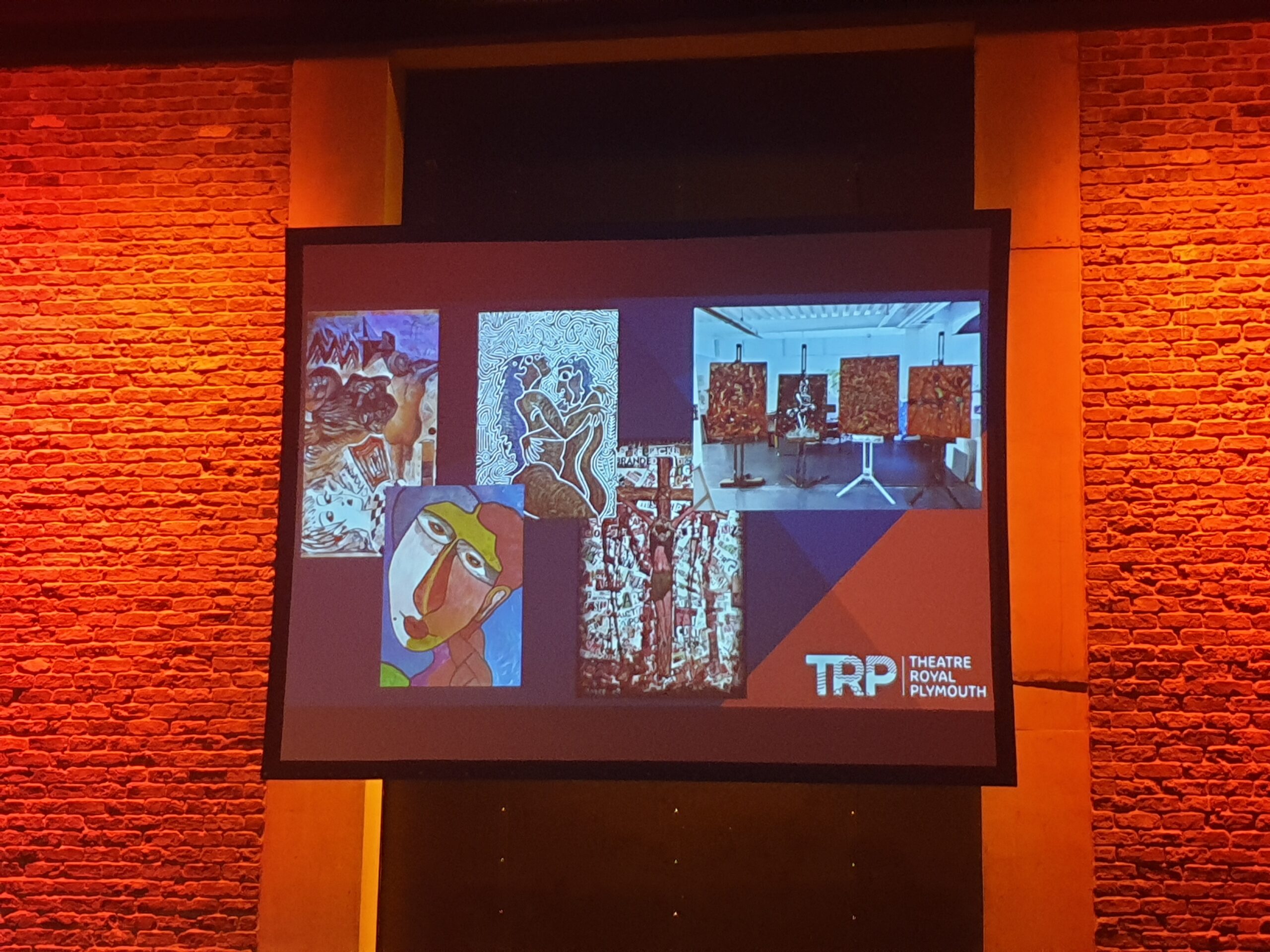By Alyson Hillis, PhD student, Public Health Institute, Liverpool John Moores University, on the recovery and arts conference at the Everyman Theatre in Liverpool, which was sponsored by the SSA

It wasn’t just the ‘sex, drugs and rock and roll’ research that first attracted me to Liverpool John Moores University. Appealing as that was, it was when I heard about the not-so-conventional approaches to tackling some of society’s greatest problems that I was lured in. The Recovery and the Arts conference was testament to this way of thinking. Moving away from medicalised models and criminal justice penalties, the conference was the first of its kind to showcase community-based arts projects across the UK.
Aptly held at the historical Everyman Theatre in Liverpool, the presentations were not typical of the traditional research conference. How better to exemplify the positive impact of the arts on recovery than to see it first hand? Through short films, dance, theatrics, thought provoking workshops that made you question your life choices by asking if you use a washing up bowl or your sink to clean your dishes, and the sharing of personal journeys, I have never been on such a rollercoaster of emotion during a one-day conference.
‘I felt love as soon as I walked in that room…and gave up the alcohol’
Quote from attendee
The projects that were showcased reach the most vulnerable individuals, offering them a safe space, to be taken out of their comfort zones and provide an outlet to express themselves without necessarily using any words. The Bristol Drugs Projectuse ‘FIRST’ to describe their methods: Fun, Ideas, Reflections, Stages and Trust. These can be the darkest of times for people wanting to start recovery. A few said that the arts was something different from talking about childhood traumas. It makes recovery lighter, fulfilling and connecting. Not only does it smash through the stigma and challenge people’s perceptions of recovering addicts, but allows development. As Mark Prest said in his short film Portraits to Recovery, one must ‘triumph through adversity’.

There was a strong narrative throughout the day of reframing recovery and what it means: ‘I’m a recoverlutionary’ was one person’s synopsis. The projects do this by getting everyone involved. The Geese Theatre Company like others, included everyone in the creation of the performances from writing the scripts to using individual’s improvised dance sequences. Liverpool’s Fallen Angels and Scotland’s Phoenix Futures performances were created, led and based on their peer mentoring scheme by the longer standing members of the group.
‘I swapped street life for theatre life’
Quote from performer
While each presentation was unique, without realising it, the groups had the same thread weaved through them. There was no hierarchy – from the organisers, who in many cases were on the path to recovery themselves, to the newcomers. There was an unspoken sense of understanding and acceptance running throughout the whole conference. In a way, this brought a feeling of calmness into the room. It didn’t matter who got up on stage, what they did, what they said, there was a feeling of pride and celebration, from the person performing, to the audience members. As the day went on, that sense of equality meant the messages that were coming through were becoming more and more powerful, building one on top of the other. I’ve never felt that sense of empowerment at a conference and that what we were watching was something significantly bigger than ourselves.
It wasn’t surprising that many of the intros spoke about the deteriorating political backdrop. In light of cuts in drug-related and public health funding, the presentations mentioned the need for more social prescribing and a call to ‘embrace the fantastic’. Creativity should be funded as a treatment option. However, showcasing these projects like the conference did, needs funding in itself. The sharing of stories, journeys and experiences is something we need to see more of and hearing them directly from the community will help gain momentum and provide similar services across the country.
A big thank you should be given to Dr Stephanie Kewley for single-handedly organising this important day, to the Society for the Study of Addiction for their support in funding the conference, to those who dedicate so much of themselves to run these inspirational projects and to the performers for putting on a truly memorable day.
Community art-based projects who performed at the Recovery and the Arts Conference:
- Bristol Drug Project, Bristol: bdp.org.uk;risingvoiceschoir.co.uk
- The Spider Project, Birkenhead: www.spiderproject.org.uk
- Our Space, Theatre Royal, Plymouth: www.theatreroyal.com/take-part/adults-and-communities/#our-space
- Ritual, Fallen Angels, North West: www.fallenangelsdancetheatre.co.uk
- Messy Connections: www.messyconnections.co.uk
- Portraits of Recovery: www.portraitsofrecovery.org.uk
- Outside Edge Theatre Company, London: www.edgetc.org
- Small Performance Adventures, Brighton: www.smallperformanceadventures.com
- The Together Project, Phoenix Futures, Scotland: www.phoenix-futures.org.uk
- Night-Light Creative Arts: www.nightlight-creativearts.co.uk
- Staging Recovery Geese Theatre: www.geese.co.uk

